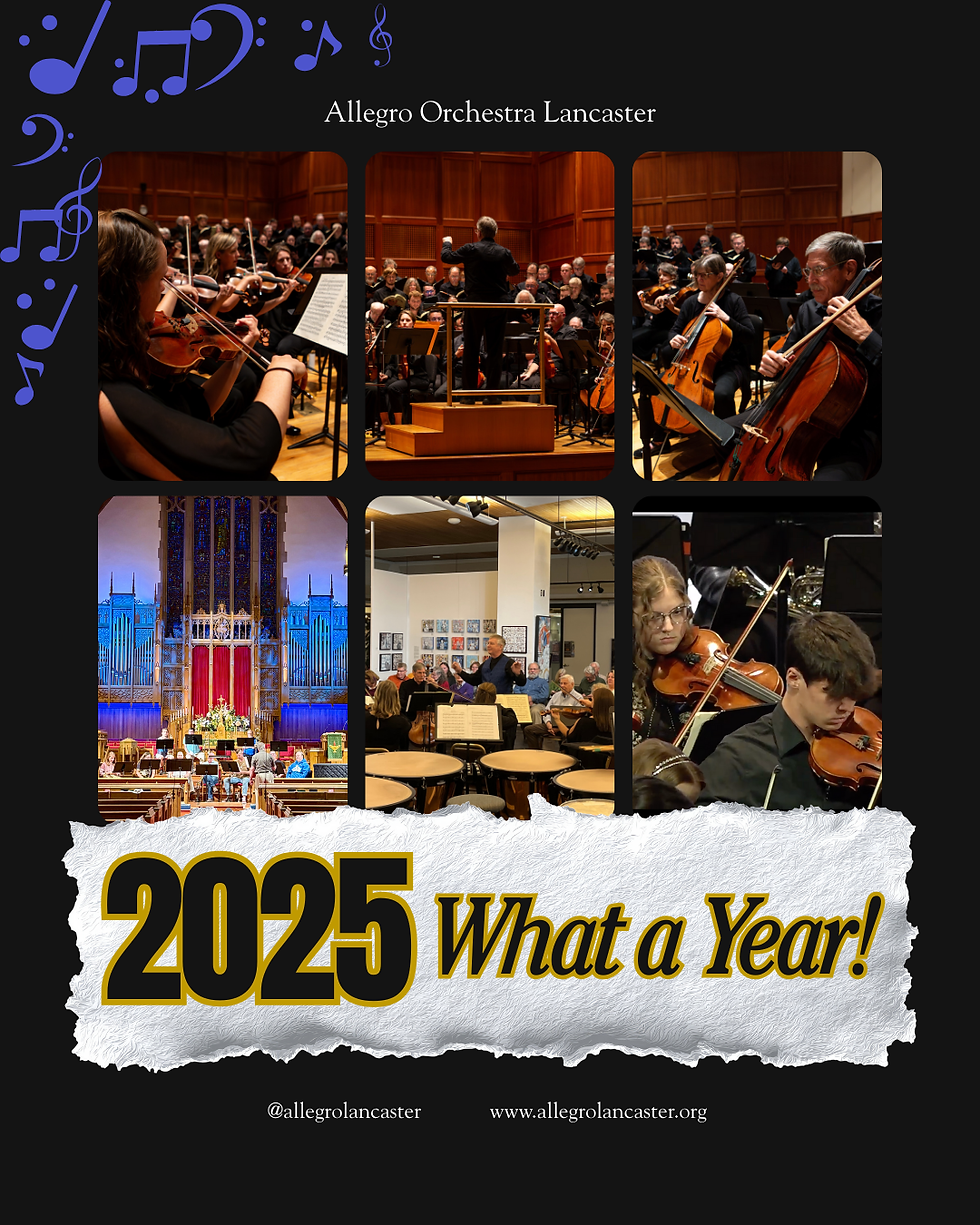Classical Music and the Brain: How Listening Can Improve Your Life
- cfresh
- Nov 1, 2025
- 3 min read
At Allegro, we truly believe in the transformative power of live classical music. Our mission, to expand the appreciation and love for classical music across multiple generations in Lancaster County, is at the heart of all that we do. Our efforts to make classical music performance accessible through friendly pricing, free admission for children, the atmosphere of community and connection, and our quest for exciting venues and engaging programs all lead back to our belief in the power of this art form.
Music is not just an abstract pastime enjoyed by a privileged few – it fills every corner of our lives and it can change the way we feel, remember, and think. Consider a film or television program and think about how the music in each scene underscores and amplifies emotions, creates suspense, anticipation, sorrow, or joy, and try to imagine what those scenes would be like if the score was absent. Would it be as impactful? Would you be as engaged? As things change in our day to day life, the presence of music, though not always apparent, is constant.
Music does more than score our lives; it impacts our brain, our memory, social connectedness, and even our overall health. A 2023 study published in a journal indexed by the National Library of Medicine states: “Music engages a diverse network of brain regions and circuits, including sensory-motor processing, cognitive, memory, and emotional components” (Zaatar, Alhakim, Enayeh, and Tamer, 2023). This study recognizes the transformative power of music in the brain via its capacity to foster neuroplasticity and reshape neural networks, extending through the lifespan from prenatal development to the challenges of aging, impacting cognitive, emotional, physical, and social well-being (Zaatar et al, 2023). The potential of music to positively impact the brain has led to the development of music therapy as an alternative form of intervention for treating neurological impairments in children (Bringas et al., 2015), improving mood, vigilance, and quality of life for those with Parkinson's or Alzheimer's (Park and Kim, 2021; Pohl et al., 2020), and helping reorganize the neural pathways of stroke patients (Amengual et al., 2013).
The power of music goes beyond physical health and into social health. The neural pathways activated by music processing are very close to those of social processing (Nummenmaa et al., 2021). In this way, music uniquely satisfies our need for social bonding. While most studies emphasize musical activity like singing or playing in a group as having the largest emotional impact, the way a group's collective emotion is translated into a live performance allows these beneficial effects to transfer powerfully to the audience. The emotional stimulus we experience while listening to a piece of music, chills, tears, etc, signify the engagement of brain pleasure pathways, those associated with reward, motivation, arousal, and emotions. Put simply, when you listen to a pleasant piece of music, your brain responds with a release of dopamine.
As we head into November, we begin to think about what we are grateful for. For us at Allegro, the most joyful thing life has to offer is great music played passionately by brilliant, dedicated artists who have devoted their lives to this craft. We are dedicated to sharing our evidence-backed belief in the transformative power of live music with the people of Lancaster. We hope you will join us in celebrating joyful music on November 15th and 16th at the Lancaster Art Vault for “The White Star,” featuring Bernard Kane! Tickets are available at allegrolancaster.org.




Comments